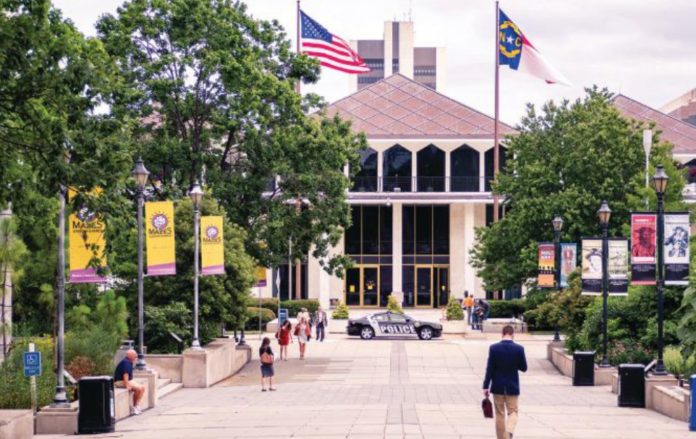Everyone knows it. People are busy. It’s not easy to bring public attention even to the issues that affect everyday life, even when change is in the air and that change may not be in the interest of large segments of the public.
The challenge of bringing people’s attention to critical public policy issues has become even more difficult as the footprint of traditional newspapers has declined and news sources become more fractured in the Internet Age.
That’s a big part of the reason why the N.C. League of Municipalities entered into a partnership with WRAL’s Techwire in 2018, using its platform to help elevate the investments that cities and towns make to grow the economy through HereWeGrowNC.org. WRAL, a Raleigh-based news outlet, has one of the most visited websites in North Carolina, one that attracts readers from across the state and nation.
In 2020, that partnership will expand to include a focus on some key issues of importance to League member cities and towns, and the state as a whole: broadband access, short-term rentals, and rural challenges and resiliency.
Beginning in February and into the spring, look for articles and videos appearing on the main WRAL homepage and then hosted on a page for all six of the issue-based stories and three accompanying videos.
Among those articles will be case studies looking at two rural municipalities, Rockingham and Williamston, as they deal with the challenges facing so many rural communities – the closing of textile mills and other manufacturing plants, water and sewer system viability, and how to reinvent their economies amid these global trends. We will also examine how cities and towns are addressing the rise of short term home rentals through online platforms like Airbnb, and how that can affect traditional neighborhoods – with very different approaches from Asheville, Wilmington and Nags Head. And we will cover, from the perspective of real people suffering real consequences, the effects of poor internet access across significant areas of the state.
To get a little flavor of some of these pieces, here are few teasers of what you will find:
- “The story of textiles is that they exited out. So, we had to go to work like a lot of communities did,” said Monty Crump, Rockingham City Manager.
- Williamston’s story is only different in that its loss and its investment were relatively recent. Many North Carolina towns faced similar situations in the 1990s and early 2000s when textile and furniture mills were shuttering left and right. Dozens of towns saw their largest property tax payer and utility rate payer – sometimes making up a quarter of those revenue streams – gone overnight.
- “Broadband is so important because no matter what your business is, efficiency is the bottom line. It doesn’t matter if you have the greatest product in the world — if you’re not manufacturing it efficiently, that’s a loss. If you’re not selling or marketing it efficiently, you’re losing,” Carter said.
- Once again, a big part of the goal was to preserve the character of Wilmington’s historic districts, as well as discourage gentrification and keep neighborhoods residentcentric. But there is that balancing act. The city also recognized that renting on a short-term basis represent economic opportunity for some residents and provides options to visitors.
As these stories are published, the League will be sure to use its electronic newsletters and social media platforms to direct all of our members to read more about these issues of growing importance to cities and towns.
















